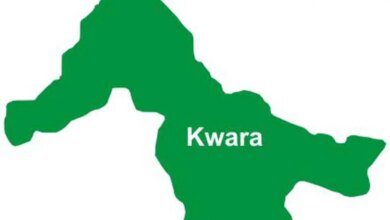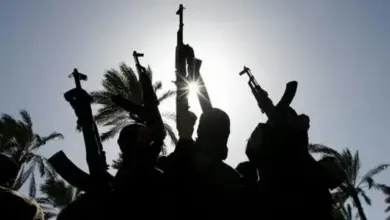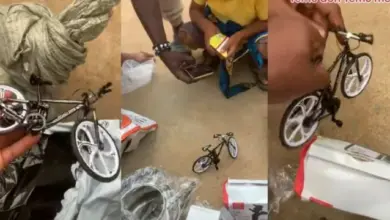Left behind by long dry days: Nante-Zongo’s farmers struggle to survive changing weather patterns
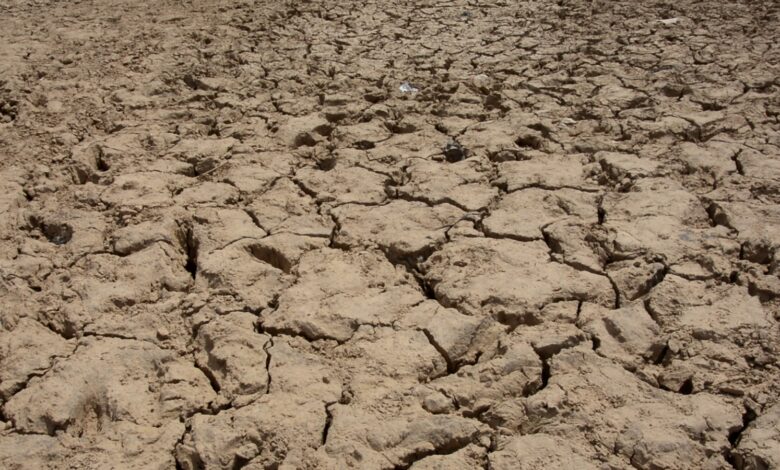
Once upon a time, the people of Nante Zongo, a small farming community near Kintampo, could count on the rains. The fields were green, and the farmers smiled.
But now, the rains no longer come when they should. The land is dry, the crops are dying, and the young people are leaving home in search of survival.
What was once a peaceful farming community has become a place of struggle.
“This land used to give me plenty of maize,” says Kwadwo Boadi, a farmer who once cultivated 30 acres.
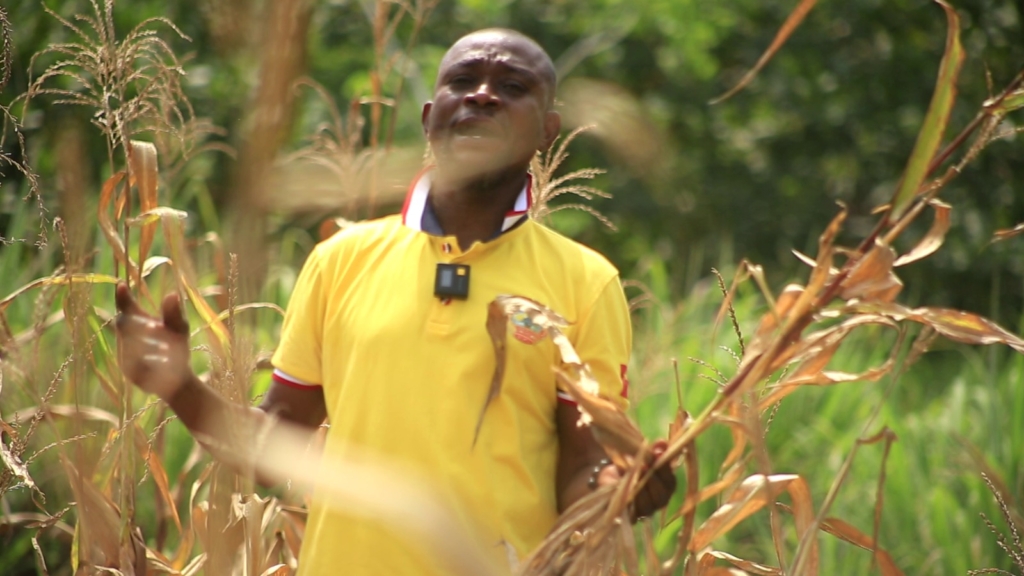
Kwadwo Boadi on his farm
He walks across the dry field, now cracked by heat. His voice is heavy with loss.
“Sometimes, I spend nearly GH₵ 60,000 every season, yet I get nothing. By now, we should be harvesting maize. But look at this land — it’s all dry. This is what happens every year now.”
Kwadwo says the last few years have been the worst he has ever seen. His crops fail again and again because the rains are delayed for months.
Nearby, Aisha Alhassan also stopped farming after losing all her okra crops.
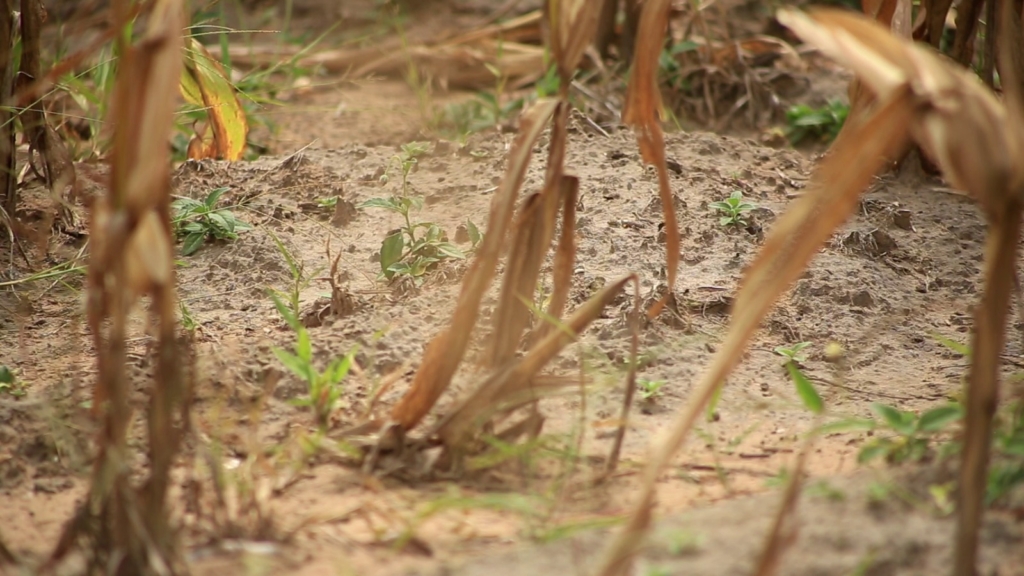
“Because of the bad weather, when we farmed our okra, it didn’t yield. The sun destroyed the plant,” she says.
For Aisha and many others in Nante Zongo, farming has become too risky. The rain is unpredictable, the soil is weaker, and farming costs are high.
A global problem felt in a small village
Scientists say what is happening in Nante Zongo is part of a bigger global problem called climate change or global warming.
When people burn fuel like petrol, diesel, or coal, gases are released into the air. These gases trap heat around the Earth, making the planet hotter. As a result, rains become irregular, rivers dry up, and farmers struggle to grow food.
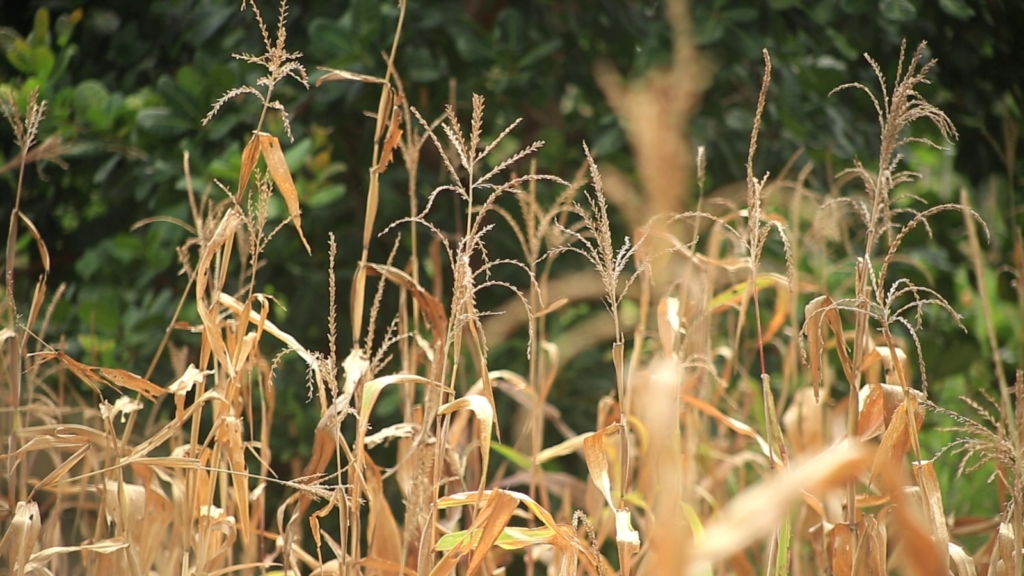
Adisah Sumani, another farmer, says she has been farming for 17 years — but things are getting worse.
“In the beginning, I would harvest around 10 bags of maize, but now, if you get even 4 bags, you are lucky. Last year and this year, we couldn’t harvest anything,” she says. “If you invest your money in farming now, it’s hard to get it back.”
The United Nations says Africa contributes less than 4% of global greenhouse gas emissions — yet it suffers the most from the effects: droughts, floods, and food shortages.
Ghana’s own climate plan under the Paris Agreement, known as the Nationally Determined Contributions (NDCs), promises to support farmers with drought-resistant seeds, better irrigation systems, and early warning information.
But in places like Nante Zongo, these efforts are yet to reach the people who need them most.
Kwadwo bends down to pick one of his maize cobs, breaking it open to show the few remaining grains.
“Just see what it has yielded. When you peel it, you won’t see any grains. The government has to come to our aid so that we can continue farming,” Kwadwo appealed.
The rise of climate migrants
Because of the changing weather patterns, many young people have left Nante Zongo. Experts call climate migrants — people who move not because of war, but because they can no longer survive from the land.
Many have settled in Kumasi, where they now work as tricycle (pragya) riders.
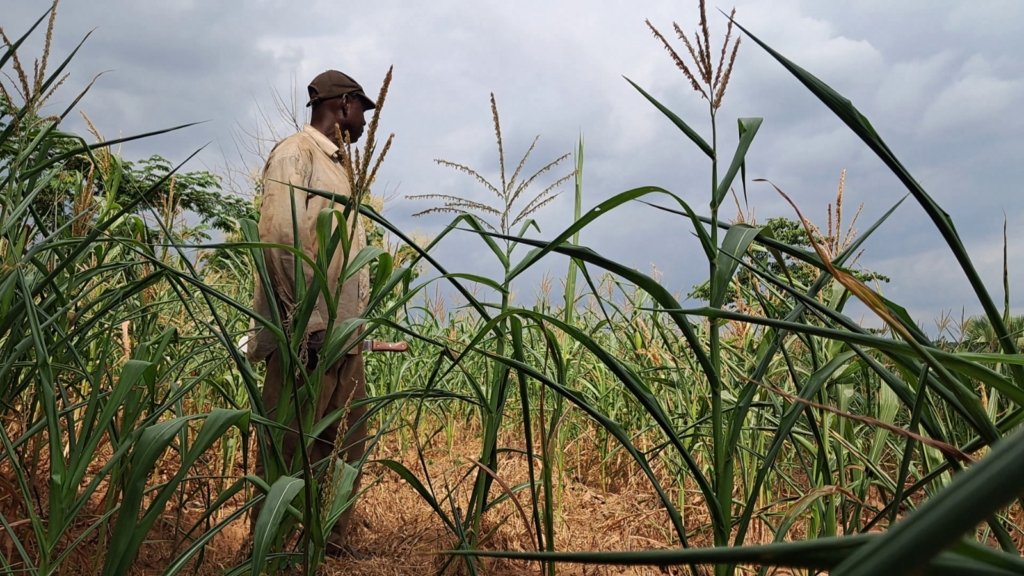
Nanji Ibrahim, once a proud farmer, is now one of them.
“I used to farm with my brothers — 13 acres of maize. We would get enough to fill 13 tractors. Now, you can farm all year and still not get one tractor full. It doesn’t rain like before. We had to leave. Now nobody is in Zongo again,” he says.
Experts warn that if things do not change, more people will be forced to abandon their farms.
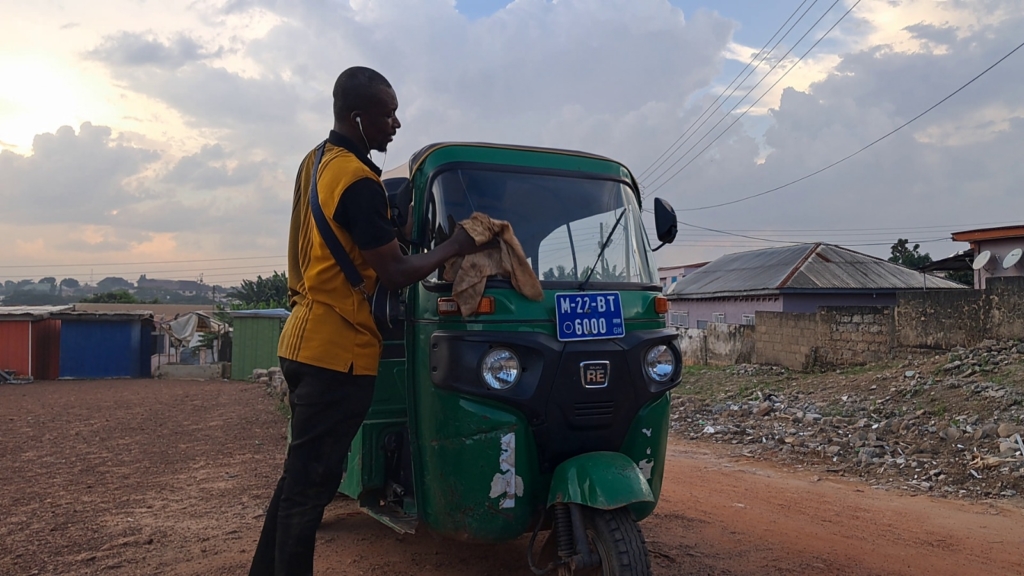
A report by the World Bank says that by 2050, more than 80 million people in Africa could move because of droughts and floods.
A senior research scientist at the CSIR–Crop Research Institute in Kumasi, Dr. Stephen Yeboah, says changing weather patterns are already causing deep losses in farming communities.
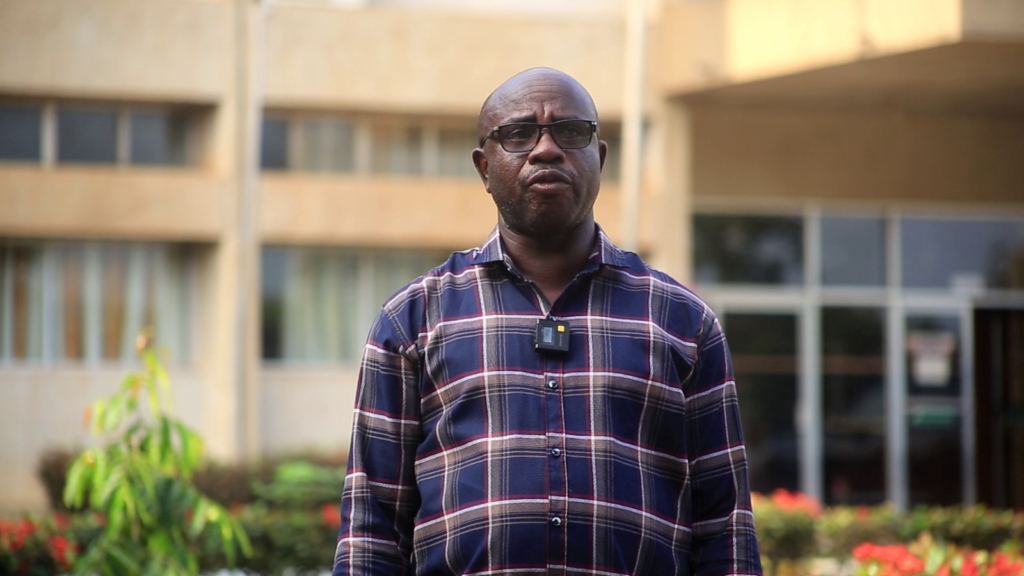
Dr Stephen Yeboah
“First, we see crop failures, livestock losses, and loss of income. This leads to migration. Many young people move away to cities to find jobs, while those who stay live in poverty because there’s a long period of inactivity,” he explains.
He believes local action can help.
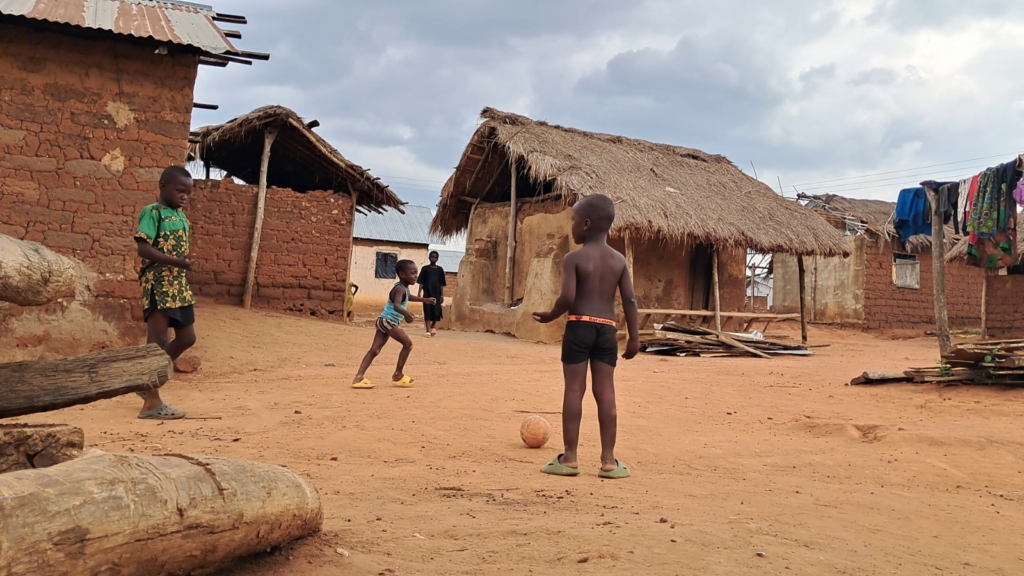
Children playing while their elderly brothers have left for the cities
“At the district level, we have something called a Climate Smart Agriculture working group. When this is well supported, interventions become more sustainable and have an immediate impact,” he adds.
Dreams of the elders
For the older generation in Nante Zongo, farming is more than a job — it’s life.
A 65-year-old farmer, Kadir, says he has watched all his children leave.
“I have about seven children who have gone to the cities for work. My friend too has six who have left. Now it’s just us old men and the small children,” he says sadly.

Another elder, Abubakar Iddi, believes the community only needs a little help to keep farming alive.
“We cannot stop farming; it’s what our fathers taught us. If we get even small support, we can continue,” he says.
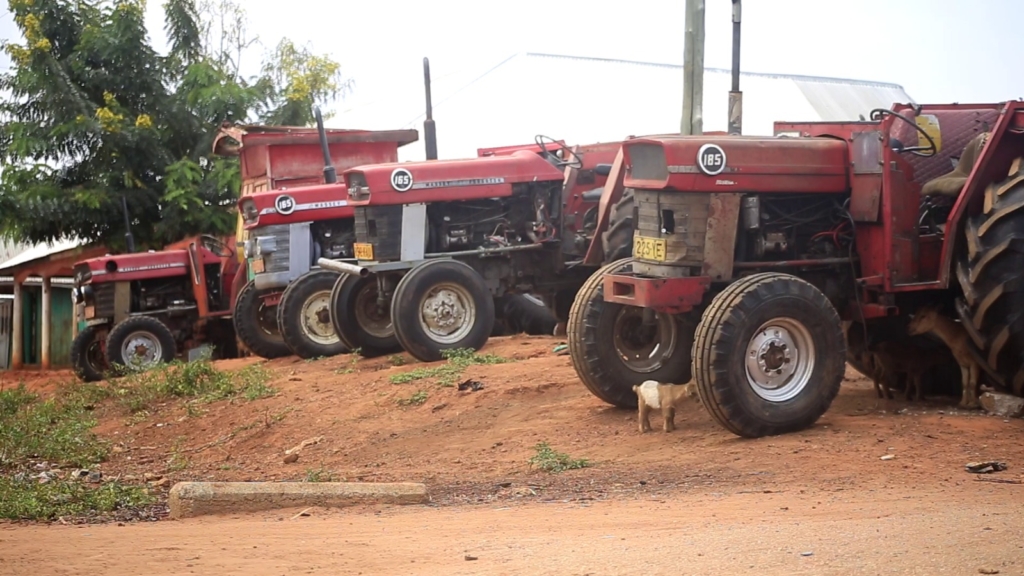
The once fertile land of Nante Zongo now lies silent, dry, and cracked. The people are not giving up — but they need help.
They dream of the day when the rains will return, the farms will grow again, and no young person will have to leave home just to survive.
For now, they wait — between hope and the dry wind.
This is a JoyNews-CDKN-University of Ghana C3SS project with funding from CLARE R4I Opportunities Fund.
DISCLAIMER: The Views, Comments, Opinions, Contributions and Statements made by Readers and Contributors on this platform do not necessarily represent the views or policy of Multimedia Group Limited.
DISCLAIMER: The Views, Comments, Opinions, Contributions and Statements made by Readers and Contributors on this platform do not necessarily represent the views or policy of Multimedia Group Limited.
Source link


